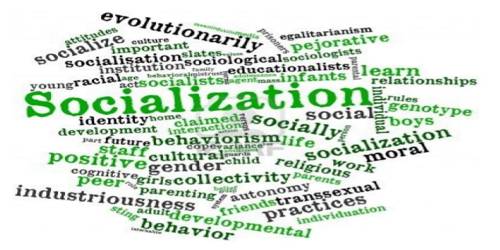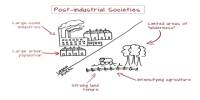Socialization is the process of transferring norms, values, beliefs, and behaviors to future group members. It is the means by which human infants begin to acquire the skills necessary to perform as functioning members of their society. Primary socialization in sociology is the acceptance and learning of a set of norms and values established through the process of socialization. For example, if a child saw his/her mother expressing a discriminatory opinion about a minority group, then that child may think this behavior is acceptable and could continue to have this opinion about minority groups.
Secondary socialization refers to the process of learning what is the appropriate behavior as a member of a smaller group within the larger society. Such examples of Secondary Socialization are entering a new profession or relocating to a new environment or society.
Primary and Secondary Socialization:
Primary socialization takes place early in life, as a child and adolescent. Primary socialization for a child is very important because it sets the groundwork for all future socialization. Primary Socialization occurs when a child learns the attitudes, values, and actions appropriate to individuals as members of a particular culture. It is mainly influenced by the immediate family and friends.
Secondary socialization refers to the socialization that takes place throughout one’s life, both as a child and as one encounters new groups that require additional socialization. Secondary socialization refers to the process of learning what is the appropriate behavior as a member of a smaller group within the larger society. Basically, it is the behavioral patterns reinforced by socializing agents of society. Secondary socialization takes place outside the home. It is where children and adults learn how to act in a way that is appropriate for the situations they are in. Schools require very different behavior from the home, and Children must act according to new rules. New teachers have to act in a way that is different from pupils and learn the new rules from people around them. Secondary Socialization is usually associated with teenagers and adults and involves smaller changes than those occurring in primary socialization. Secondary socialization is usually associated with teenagers and adults and involves smaller changes than those occurring in primary socialization.
Information Source:
















